Reuters
News Agency Partner
Reuters is a leading source of news and information, delivering fact-based reporting and expert analysis on international events and trends.
News Desk
The News Desk provides timely and factual coverage of national and international events, with an emphasis on accuracy and clarity.
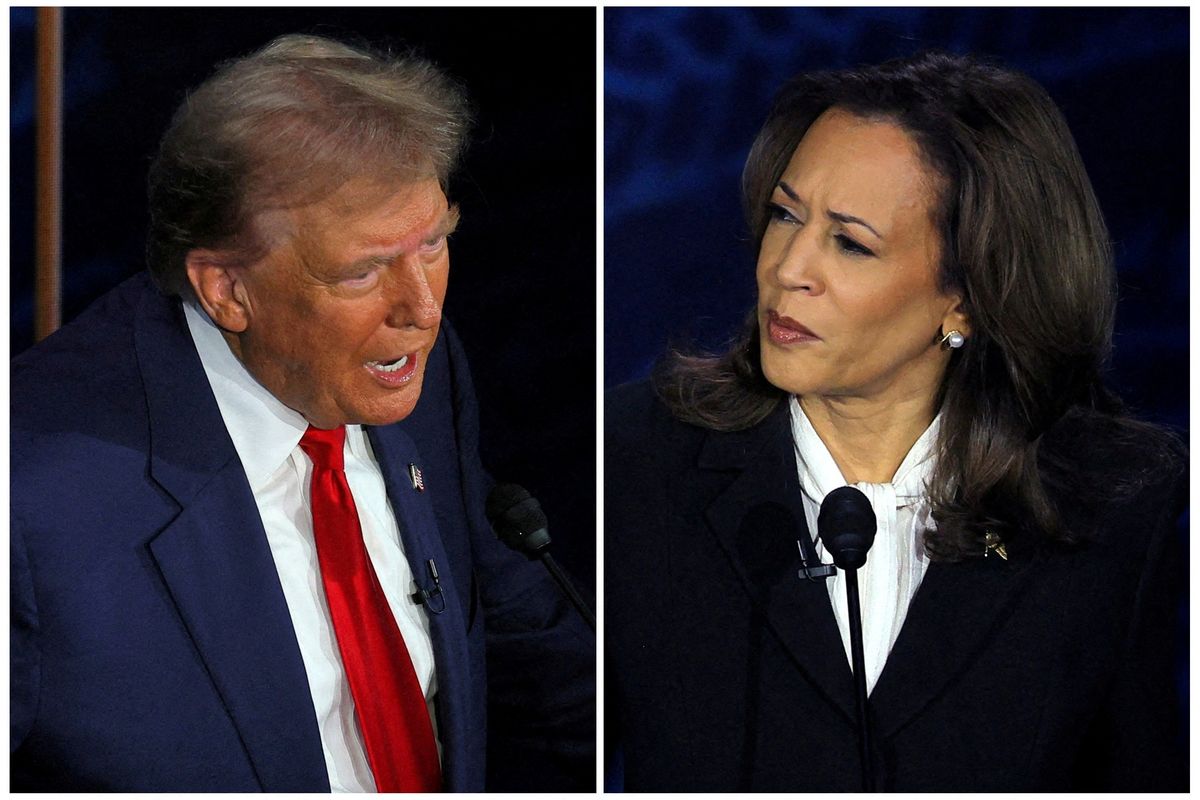
Republican presidential nominee, former U.S. President Donald Trump and Democratic presidential nominee, U.S. Vice President Kamala Harris take part in a presidential debate hosted by ABC in Philadelphia, Pennsylvania, U.S., September 10, 2024 in a combination of file photographs.
Reuters
IMF meetings dominated by concerns over potential Trump policy shifts
Trump leads Harris 46% to 38% on economic issues in battleground states
Average prices remain well above 2019 levels, with rent and food costs hurting voters
Economic anxiety is driving the U.S. presidential race from global financial capitals to Midwest supermarket aisles, but world leaders and American voters are drawing starkly different conclusions about who's best equipped to handle it.
Low growth, high debt and escalating wars topped the official agenda at the International Monetary Fund and World Bank annual meetings, but finance leaders spent much of their energy worrying about the potential impacts of a return of Donald Trump to power in November's U.S. presidential election.
Republican candidate Trump's gains in recent polls to erase much of the early advantage of his Democratic opponent, Vice President Kamala Harris, was part of nearly every conversation among finance officials, central bankers and civil society groups attending the meetings in Washington this past week.

Among concerns were Trump's potential to upend the global finance system with massive tariff increases, trillions of dollars more in debt issuance and a reversal of work to fight climate change in favor of more fossil fuel energy production.
"Everyone seemed to worry about the high uncertainty on who would become the next president, and what policies would be taken under the new president," Bank of Japan Governor Kazuo Ueda said.
Another central banker, speaking on condition of anonymity, described the concerns more bluntly: "It's starting to feel like Trump is going to win."
Trump has vowed to impose a 10% tariff on imports from all countries, and 60% duties on imports from China. These would hit supply chains throughout the world, likely triggering retaliation and raising costs.
German Finance Minister Christian Lindner told Reuters on Friday that there would only be losers in a U.S.-EU trade war.
Trump has also sought to entice U.S. voters with offers of numerous tax breaks, from extension of all 2017 individual tax cuts to exempting income from tips, overtime pay and Social Security retirement benefits.
Budget analysts say this would add at least another $7.5 trillion in new U.S. debt over a decade, on top of the $22 trillion in debt growth previously estimated by the Congressional Budget Office through 2034.
A Harris victory, by contrast, is being viewed by finance officials as a continuation of President Joe Biden's re-engagement in multilateral cooperation over the past four years on climate, corporate taxes, debt relief and development bank reforms. Her plans also are likely to increase debt, but far less than Trump's.
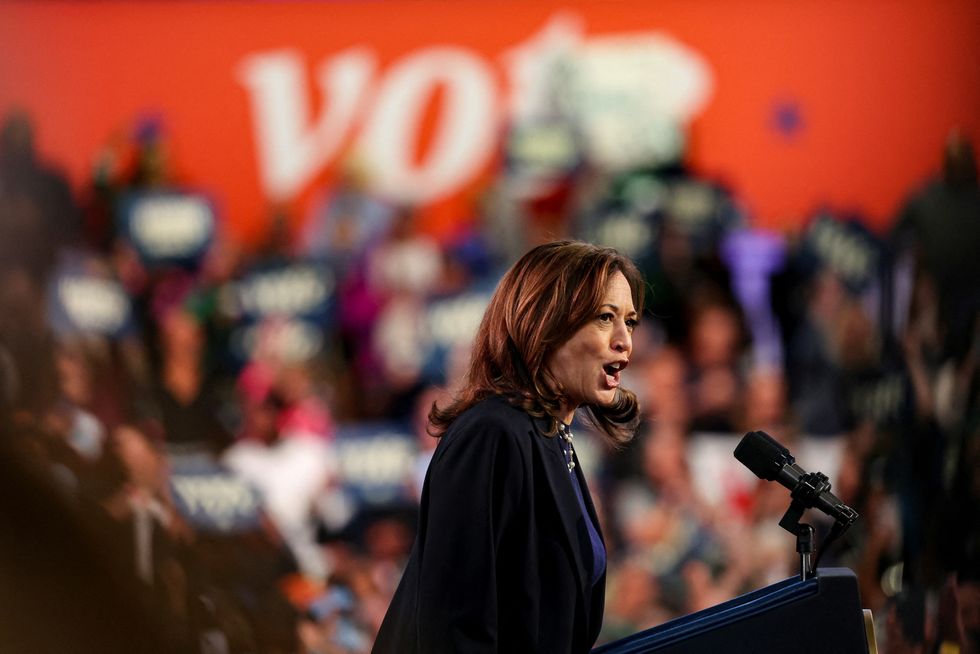
Biden kept in place Trump's previous tariffs on imports of steel, aluminum and Chinese goods - raising them steeply on Chinese imports in new industries such as electric vehicles and solar. Harris has endorsed this "targeted" approach and has slammed Trump's broad tariff plans as a $4,000 consumer tax on American families.
Markets bet on Trump
Financial markets are seeing a return of "Trump trades" in assets from stocks to bitcoin to the Mexican peso that bet in favor of a Trump victory as his poll numbers have improved.
The dollar has staged its biggest monthly gain in over two-and-a-half years, with an index .DXY measuring the greenback against major currencies up 3.6% in October so far. Standard Chartered analyst Steve Englander attributed 60% of the dollar's move upward to Trump's improved prospects in betting markets.
Brazil's central bank chief Roberto Campos Neto said that the pro-Trump market bets were already having an inflationary impact on long-term interest rate futures in the dollar-sensitive economy, adding that both Trump's and Harris' fiscal plans had inflationary elements.
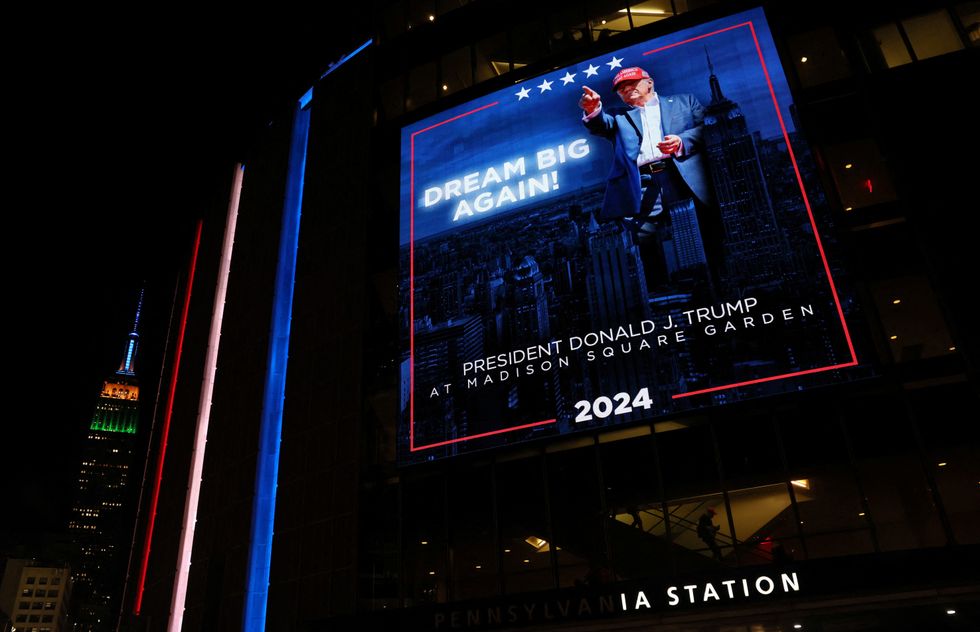
The worries about a Trump about-face on trade and spending arose as the IMF declared that the global battle against inflation had largely been won without major job losses, as U.S. strength was offsetting weakness in China and Europe.
IMF Managing Director Kristalina Georgieva urged policymakers to start shrinking a massive pile of COVID-induced debt or face a low-growth future that would leave populations increasingly dissatisfied.
Asked about how the specter of a Trump return impacted the meetings and IMF policy advice, Georgieva said the discussions had focused on solving the economic problems at hand.
"The sentiment of the membership is that elections are for the American people," Georgieva told a news conference. "What is for us to identify is what are the challenges and how the IMF can constructively address these challenges."
From Wall street to Main street
Tiesha Blackwell, 24, voted for Joe Biden in 2020 but says she is casting her ballot for Republican former President Donald Trump this year, and high food and housing prices are a chief reason.
Blackwell, who lives southwest of Detroit in the battleground state of Michigan, says she has a better job now, but her rent has since doubled after she was forced to move, and her grocery and utility bills have soared."I'm not worse off than I was four years ago," Blackwell said on the sidelines of a rally featuring Trump's running mate JD Vance in Detroit this month.
"But compared to then, things are really, really high out here. I went from paying $575 to now I pay $1,100 just for rent. I remember ground chuck was $2.99 a pound. Now it's $4.99. Everything is higher."
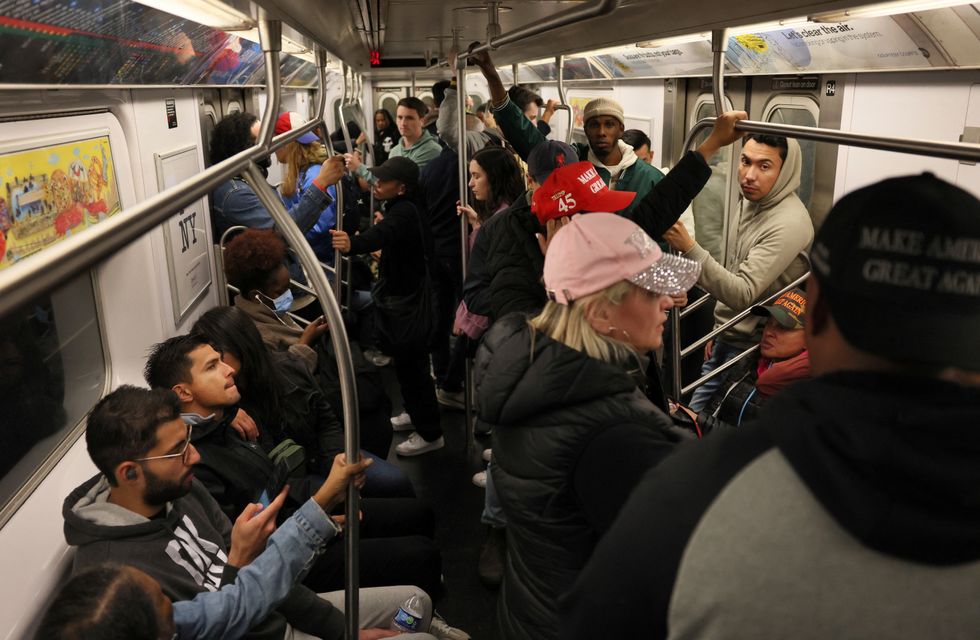
The United States' post COVID-19 economic recovery has been the envy of the developed world, with strong consumer spending and business and federal investment helping the economy dodge a predicted recession. Stock markets are at record highs, jobs and wages are growing fast, unemployment is low and inflation is now below January 2020 levels after a spike in 2022.
But prices for food, rent, utilities and treats like dining out are all well above 2019 levels, because of complex factors the U.S. government has limited impact on, like labor costs, lack of competition and supply chain issues.
Many Americans are in a constant state of sticker shock.
That may explain why voters in the seven battleground states that will determine the winner of the November 5 election have a negative view of the economy, with 61% saying it is on the wrong track in a Reuters/Ipsos poll this month, and 68% saying the cost of living was on the wrong track.
Vice President Kamala Harris, the Democratic nominee, and Trump have proposed different fixes. Harris has promised to fight price gouging and boost a child tax credit, while Trump has proposed cutting taxes on overtime pay, imposing blanket tariffs on imports that he says will bring manufacturing back to the U.S. and mass deportation of immigrants.
Trump's proposed tariffs and deportation threats will drive up prices for goods and services, many economists say, while Harris' price-gouging ban is untested on a federal level.
Still, when asked which candidate had the better approach on issues, Trump led on the economy - 46% to 38%, this month's Reuters poll showed.
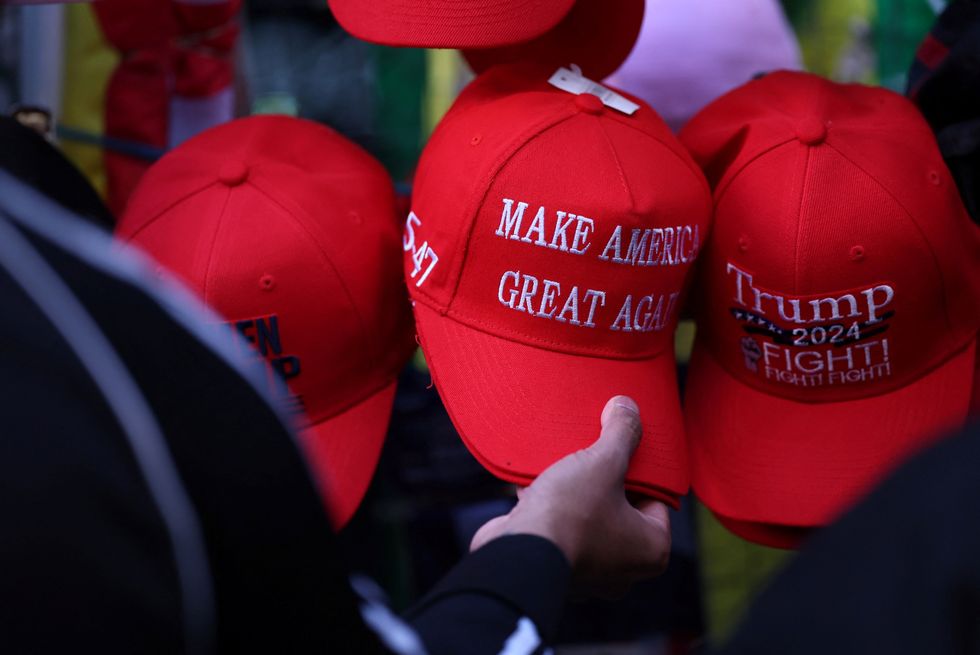
People who study economics say they feel voters' frustration even if they don't think Trump's plan will help.
"I understand inflation better than the average person, and I've worked at the Fed, but I remain surprised at how upset inflation makes me," said Michael Strain, director of economic policy studies at the conservative American Enterprise Institute, who has been critical of Trump's tariff plans in the past.
"When I walk into a restaurant that I've been going to years and ... instead of 50 bucks, it's 70 bucks, I feel like somebody punched me in the face and stole a $20 bill out of my wallet," said Strain.
Blackwell, the Michigan voter, says she buys Trump's argument that tariffs are needed to keep out imports and protect U.S. jobs. "Yeah, it could increase the price for consumers, but in the long run something has to be done," she said.
Michigan on edge
Harris' visit Monday to Michigan will be her tenth since becoming the party's nominee. The state is still scarred by the loss of over a third of its auto-related jobs since 1990 and backed Trump in 2016, while Biden won by less than three percentage points in 2020.
Harris' campaign has over 375 staff in the state, nearly four times Trump's, yet a FiveThirtyEight compilation of polls shows Harris with less than a 1 percentage point edge over Trump in the state.
Last Monday, Harris and Republican former lawmaker Liz Cheney met with suburban voters in Oakland County, outside Detroit. On Saturday, she joined former First Lady Michelle Obama in Kalamazoo.
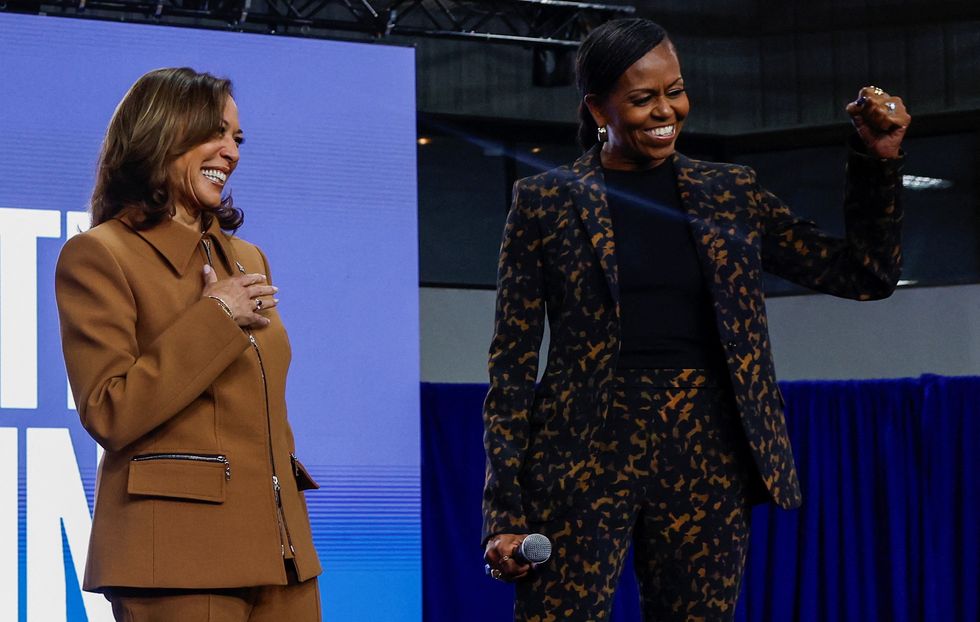
Michigan's unemployment rate has been consistently higher than the overall U.S. numbers for years, but the state hit its highest job level and lowest unemployment in 20 years last year, as federal infrastructure money flowed in.
Ameshia Cross, a Democratic strategist, said the Biden administration deserved credit for creating hundreds of thousands of new jobs in Michigan and across the country, but that high living costs were still having a big impact on voters.
"There are a lot of things that people are feeling in terms of their personal economy that are not reflected in the jobs numbers," Cross said, including worries about the impact of electric vehicles on the local auto industry, housing and food costs.
"It's not the Dow Jones Industrial Average. People are looking at whether they have money to do the things they were able to do just a few years ago, and most would tell you they cannot," she said. "All politics is personal. Their prism is determined by what they're going through on a daily basis."
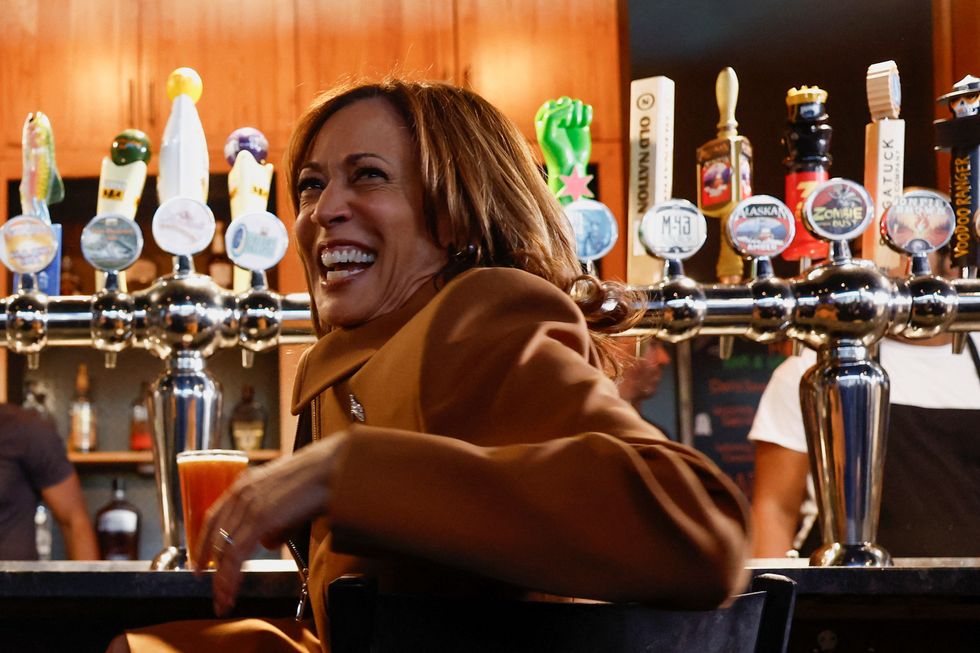
Devin Jones, 20, a college student who lives in Flint, Michigan, said his parents - both Army veterans - were forced to move away and buy a less expensive home in Goshen, Indiana, after inflation soared. They also put off a long-promised 18th birthday trip to Germany, where Jones was born.
The surge in the price of ground beef and eggs was "ridiculous," he said. "Under Trump, under previous administrations, things were alright. Things weren’t too expensive," he said.
Not everyone is disgruntled.
Stu Billey, 43, a United Auto Workers member and ex-Marine who lives in Flint Township, Michigan, said his union job now pays $40 an hour, compared to the $16 hourly wage he earned a few years ago.
"Having a union job has drastically increased my livability. I’m way better off but it had to do with the negotiation of a contract," he said, adding that higher grocery prices hurt less now given his higher wages.
Billey says he voted for Biden in 2020 and will back Harris, but says there's considerably less enthusiasm for her than for other Democrats like Biden or former President Barack Obama.
“Voting and supporting are different things," he said.








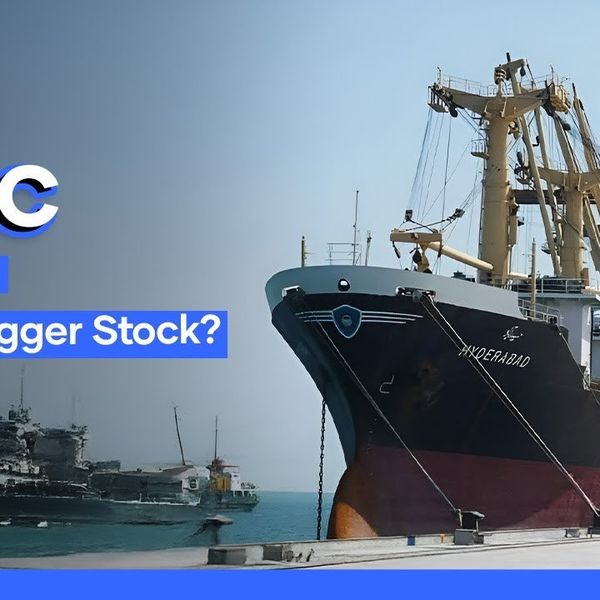

Comments
See what people are discussing